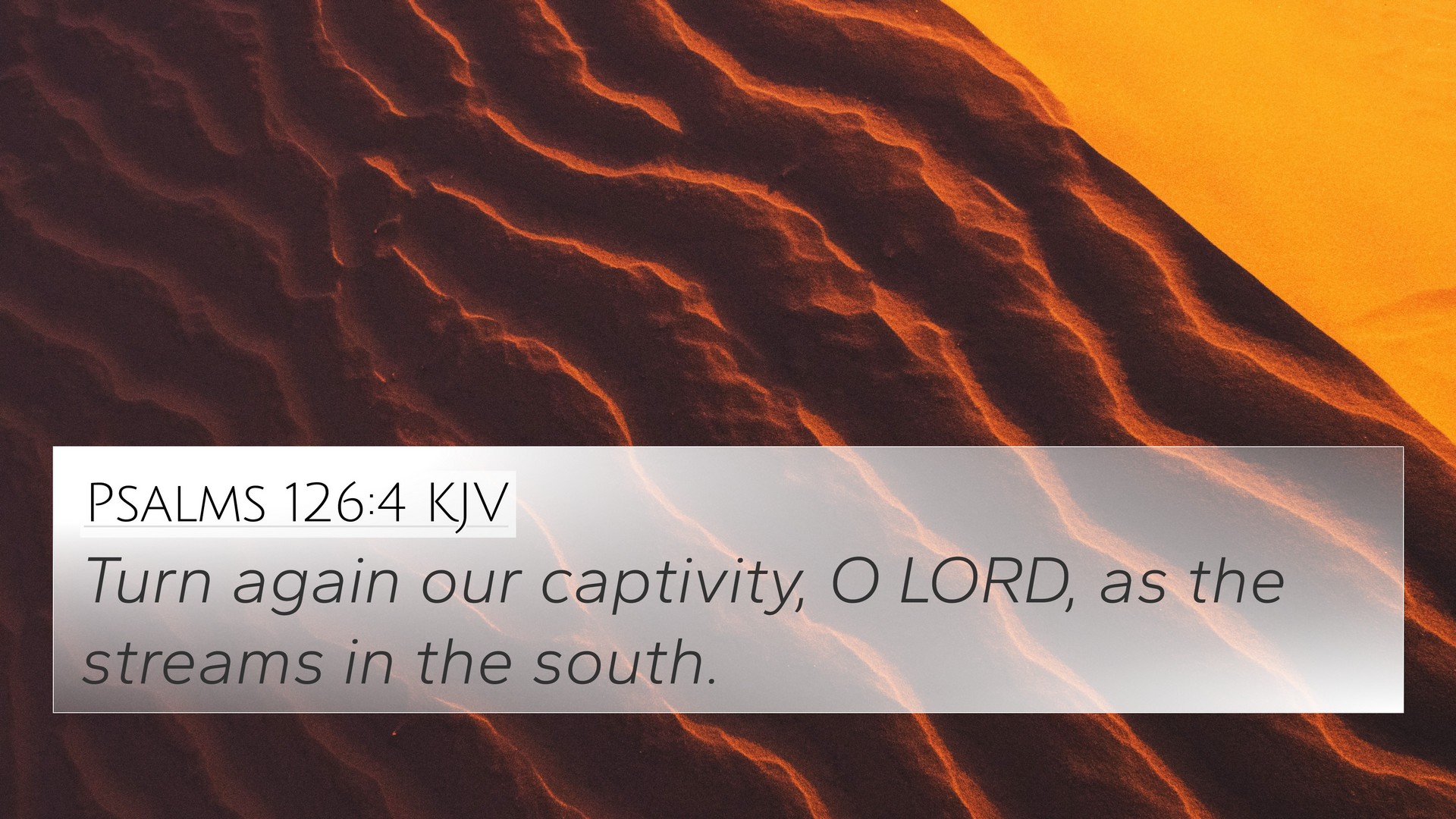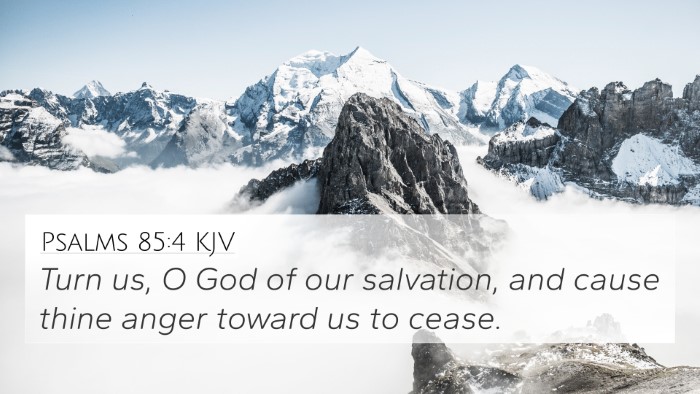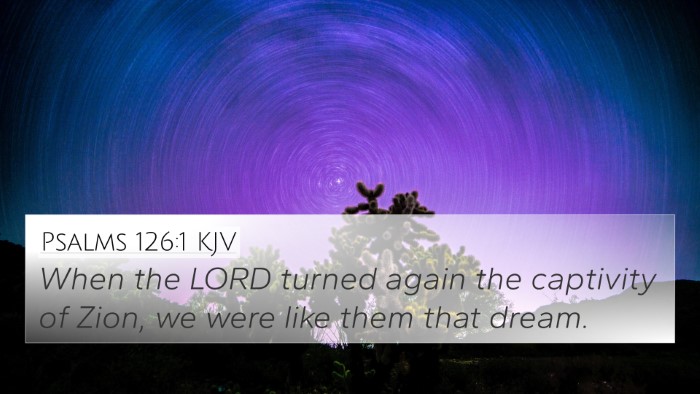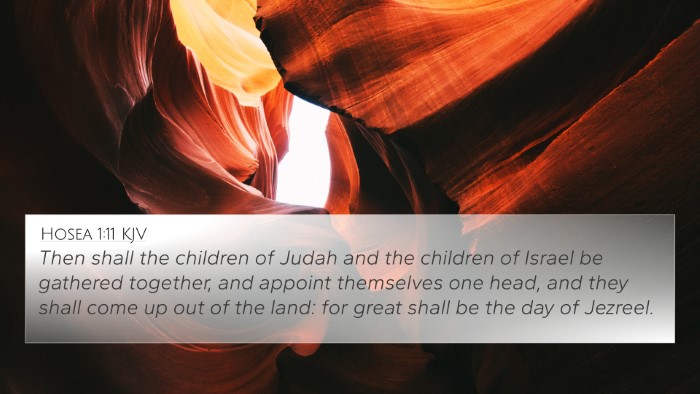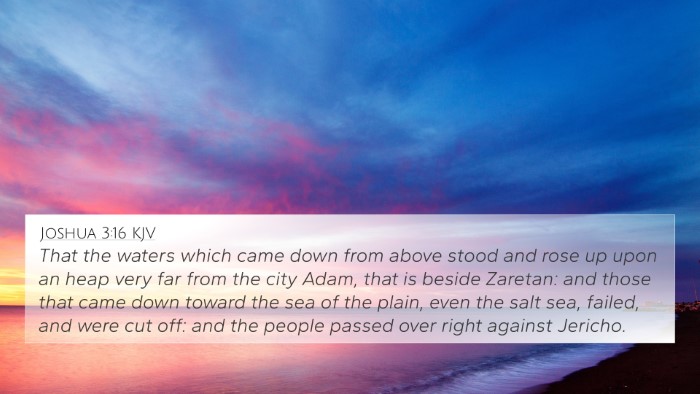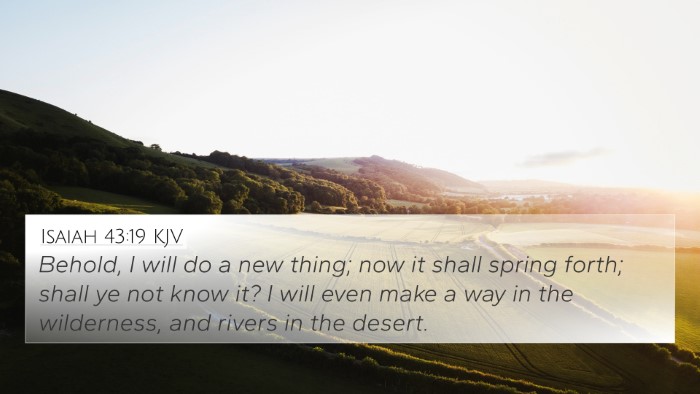Psalms 126:4 - Summary and Interpretation
Psalms 126:4 states: "Restore our fortunes, O Lord, like streams in the Negev." This verse expresses a plea for restoration and revival, reminiscent of God’s past blessings. The psalmist is longing for a renewal of the joy and abundance that were once experienced.
Meaning of Psalms 126:4
This Psalm captures the essence of longing for divine restoration and the joy of returning home. Here is a combined insight from Matthew Henry, Albert Barnes, and Adam Clarke:
- Restoration of Fortunes: The verse is a prayer for the reversal of misfortunes, reflecting a time of affliction and a desire for God's intervention. Just as the Israelites were once captives, this invokes God's mercy to restore their right standing and blessings.
- Imagery of Streams in the Negev: The Negev desert is known for being dry and barren, but when rains come, it transforms into a lush landscape with flowing streams. This imagery symbolizes how God's restoration can bring life where there was once desolation.
- Historical Context: This verse is rooted in the post-exilic period when the Jewish people returned from Babylon. The emotions expressed reflect both a tangible hope for physical restoration and a spiritual revitalization, inviting a reflective examination of their covenant with God.
Cross References
Psalms 126:4 connects to several other biblical texts that echo its themes of restoration and divine intervention:
- Jeremiah 30:18: "Thus says the Lord: Behold, I will restore the fortunes of the tents of Jacob and have compassion on his dwellings." This verse acknowledges God's promise to restore His people.
- Joel 2:25: "I will restore to you the years that the swarming locust has eaten." Another powerful reminder of God’s capacity to restore lost years and fortunes.
- Isaiah 61:4: "They shall build up the ancient ruins; they shall raise up the former devastations; they shall repair the ruined cities." This reflects the rebirth God brings to desolate places.
- James 5:7: "Therefore be patient, brethren, until the coming of the Lord. See how the farmer waits for the precious fruit of the earth." This captures the essence of hope and expectation for restoration.
- Psalm 85:1: "O Lord, You showed favor to Your land; You restored the fortunes of Jacob." A direct call to remember God’s proactive restoration.
- Romans 8:18: “For I consider that the sufferings of this present time are not worth comparing with the glory that is to be revealed to us.” This verse reflects a similar sentiment of hope and future glory.
- 2 Corinthians 5:17: “Therefore, if anyone is in Christ, he is a new creation. The old has passed away; behold, the new has come.” A new life signifies restoration and empowerment through Christ.
Thematic Connections
The underlying themes in Psalm 126:4 can be explored through a comparative Bible verse analysis:
- Restoration: Several verses fulfill the theme of receiving restoration, as seen in the referenced verses above.
- Hope and Renewal: Verses like 2 Corinthians 5:17 elaborate on the concept of becoming new in Christ, similar to the streams that rejuvenate the land.
- The Joy of Restoration: The connection between physical fortune and spiritual fortune is a recurring motif in scripture. Understanding that battle for joy amid desolation is present in various narratives.
- God’s Faithfulness: The inter-Biblical dialogue between past and future promises emphasizes God's unwavering dedication to humanity's deliverance.
Exploring Bible Verse Connections
The requests for restoration in Psalms 126:4 resonate deeply within the biblical narrative, creating links across scripture that encourage deeper understanding:
- Tools for Bible Cross-Referencing: Utilizing a Bible concordance can help navigate these themes with ease.
- Bible Cross-Reference Guide: Leveraging resources on Bible verse parallels can reveal the interconnectedness of scripture.
- How to Use Bible Cross-References: Identifying thematic Bible verse connections can enhance personal Bible study and sermon preparation.
- Bible Cross-Reference Study Methods: Engaging in a comparative study of various contexts can enrich understanding.
Conclusion
Psalms 126:4 serves as a profound reminder of God’s ability to restore and redeem. Its connections to broader scriptural themes illuminate the transformative power of hope and the promise of renewal. By exploring these connections through cross-referencing, readers are invited to dive deeper into their understanding of God’s unwavering support and love.
